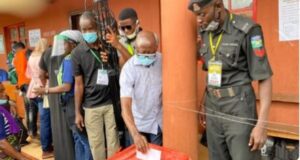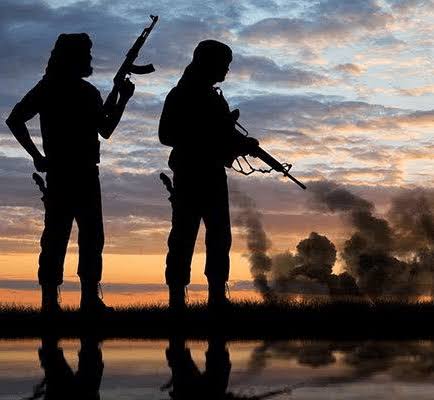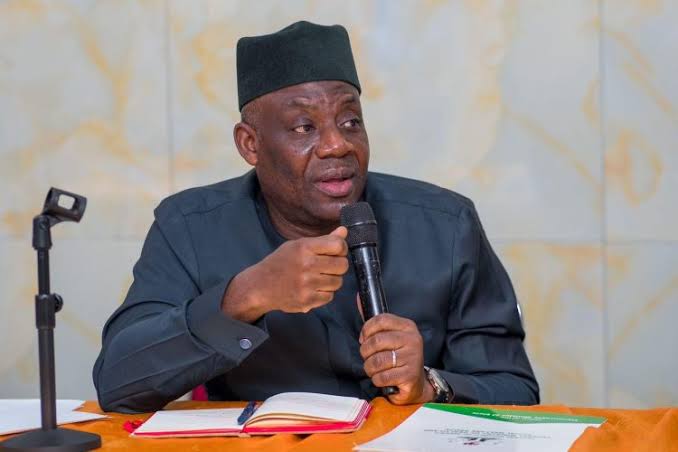
The electoral process in Nigeria, every season, comes with a humongous task of providing security, for the process, the contestants, as well as critical stakeholders, like the electorates, before, during and after the election. Many elections in the past have been marred by voters’ apathy, arising from fear for the safety of lives and properties.
That underscores the need for the government to, adequately guarantee security, to assure the citizens that they won’t be molested for whatever electoral choice they make on the day or afterwards. A look at the “sociology of electoral violence and political thuggery” in Nigeria would reveal a stark need for the provision of more security but should be more of non-kinetic means than kinetic ones. Rather than deploying the military arsenal Nigeria can muster, it is high time we started adopting sociological approaches to solving the problem. It could be embracing a more foolproof technology — electronic voting.
This is so recommended because, at the core of our national security architecture’s defect in Nigeria is, gross understaffing. As a matter of fact, Nigeria is one of the countries with the lowest policeman-to-citizens ratio in the world. The United Nations Organization, UNO recommends a police/citizens ratio of 1/400; that is; one policeman to 400 Nigerians.
But as it stands right now, with about 200 million population, and a police force of not up to 300,000 operatives, the country’s ratio would be as low as one policeman to over one thousand citizens. This is, to put it mildly, a far cry from what is required to meet the UN standard. A former inspector-general of police, Ibrahim Idris, was sometimes in 2017, quoted to have said that, “the Nigeria Police Force requires additional 155,000 personnel to adequately provide security for the country”. This means, to attain the UN ratio requirement of one police officer to 400 citizens of a country, the Nigeria Police Force needs to recruit 31,000 personnel annually, for five years, to adequately police the Nigerian population of approximately 200 million people. That is, assuming Nigeria already has about 345,000 on ground; something that nobody is sure of. Ideally, with a population of approximately 200,000,000, the country needs 500,000 policemen to attain one policeman to 400 citizens. This is assuming, no one among the serving operatives retires, dies, or gets fired, among those currently in service.
In the face of this acute shortage of personnel, we ironically have over-policed big men, politically exposed persons, clergymen, celebrities and so on and so forth, while the average man on the street is acutely either unpoliced or under-policed at best. As a matter of fact, it has become a matter of “Cash ń Carry”. Policing is available for the highest bidders, among those who can afford it.
Not too long ago, I interacted with a middle-level police chief, who lives in my neighbourhood; when our discussion got to the aspect of neighbourhood patrol and surveillance, he said, it is better, he does not tell me about the number of personnel available for the purpose. He would later let it slip, but it is better I do not reveal it here or anywhere else, so as to forestall a situation where residents of the community would no longer be able to sleep, with their eyes closed again.
Electioneering is one national endeavour that stretches the elasticity of the country’s security apparatus, to a breaking point. We have off-cycle elections in Osun, Ekiti, Ondo, Anambra, Kogi and Bayelsa states. During the periods these elections hold, the braggadocio of the “Force” is always on full display as there would be more than enough personnel, drawn from different formations across the country.
The forthcoming November 6 governorship election in Anambra state is a case in point. The inspector-general of police, Usman Baba, said, the force will deploy 34, 587 personnel including two DIGs, five AIGs, 92 other top officers and three helicopters to the state for the election. This is to, at least, ensure that the unknown gunmen who enforce the sit-at-home-order of IPOB in the south-east are overpowered, to ensure a smooth, hitch-free and fair election. The situation is not likely to be a tad different when it is time for each of the five other states with off-cycle elections.
Now, it appears like, policing the electoral process in Nigeria has now become a tea party, as the force enjoys the luxury of off-cycle elections, which ensures that security personnel from other states could be deployed to complement those whose places of primary assignment are the state under focus.
Come to think of it, assuming elections are going to be conducted in all the 36 states of the federation on the same day, I am not sure, we would have up to 10,000 to be deployed per state. But now, the police is enjoying the luxury of not having the process ongoing in the rest of the country at the same time. I doubt, if they would be able to muster as many as ten thousand policemen per state, were the election to take place at the same time across the country.
If we are to go by the norms, as it obtains in saner clines, 90% of what the military is doing in Nigeria are traditional, core duties of the police; but being “an atrophied tiger” who has lost its tigritude, the police had removed itself from its prime of place in the national security architecture. It’s such a shame.
Electioneering in Nigeria is a venture that comes with a whole baggage of crimes, like political thuggery, ballot box snatching, electoral violence with a view to rigging, vote-buying, among others. All but the last one of the above, pose the most grievous threat to voters’ turnout. Although, not turning out for voting is not an offence in Nigeria; but even in a country like Belgium where it is criminalised, they rarely achieve 100% turnout rate on election days; so here in Nigeria, voters apathy is not something that would jolt keen observers. That is not to say that, if the people have a reasonable degree of assurance of safety from physical and other arms, as posed by IPOB/ESN/or BNG, they won’t be more inclined to come out and vote, thereby enhancing the credibility of the whole process.
I, therefore, state, without any fear of equivocation that it is high time we evolved an electoral system that renders threats of physical harm ineffectual, on the outcome of our democratic process.
There is no gainsaying the fact that, come next general election, when gubernatorial elections would be going on in about 30 states, there would be no such luxury as, deploying as many as thirty-something thousand policemen per state.
The time is nigh for us to embrace technologies like electronic voting, devise means of neutralising its perceived threats, and do away with the colonial legacy of “over-reliance on brute force”, to enhance democratic culture in Nigeria.
A MUST TO READ
For your Advert Placement, Publicity, Press Release, Personality Promotion, Special Report, Featured story, Conference, Interviews, And So On – CONTACT US on WhatsApp/Call📞@ 08072633727 📲
NOTE: We wish to add you to our WhatsApp Database to get our Trending, latest and timely news directly into your WhatsApp Box as the news breaks.



